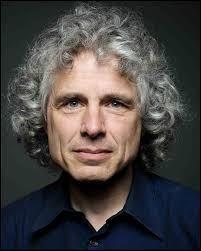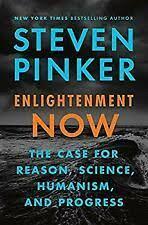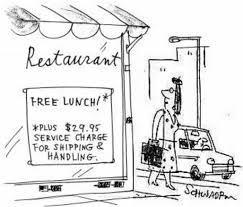 Steven Pinker is one of my intellectual heroes. Probably the closest to my own thinking. His new book is among the finest I’ve ever read.
Steven Pinker is one of my intellectual heroes. Probably the closest to my own thinking. His new book is among the finest I’ve ever read.
In 2012 he published The Better Angels of Our Nature: Why Violence has Declined. Some thought this premise was nuts. Now he’s doubled down with Enlightenment Now: The Case for Reason, Science, Humanism, and Progress.
Those four are indeed touchstones of the Enlightenment, a revolution in human thought beginning in the 1700s, immensely improving our quality of life.

Some lefties say the Enlightenment gave us slavery, colonialism, imperialism, eugenics, and so forth; its misguided hyper-rationalism led straight to Auschwitz. Pinker says this has it backwards. All sorts of modes for exploitation and repression long predated the Enlightenment; its humanism led us to overcome them.

There’s also cultural pessimism, “our sick society” a favorite phrase; a rat race of “consumerism” (which, Pinker trenchantly says, “often means consumption by the other guy”).
Meantime, the right sees the Enlightenment as vaunting individualism, unmooring people from past certainties, time-tested values, and close-knit communities. The result is supposedly a fragmented, dissolute culture, with epidemics of anomie, depression, and suicide. We were better off with reverence for thrones and altars.
But Pinker counters all this by documenting increased well-being and happiness levels for the great mass of humanity. He has no time for Nietzschean philosophy extolling the “great man” who stomps on peons. The Enlightenment also puts individuals above the tribe, race, nation, or faith; it’s average ordinary people (after all, that’s most of us) whose flourishing should be the focus. That’s humanism.

In fact, evolution hard-wired us to look on the dark side, attuned to threats. If that might be a lion lurking, best assume the worst and run. The optimist could get eaten (and wouldn’t pass on his genes). Modern life plays to this, inundating us with bad news — which tends to be more newsworthy than good news. A plane crash makes headlines; 100,000 daily safe landings are ignored. The news is full of crime too. And another cognitive bias is the “availability heuristic” — something seems prevalent if examples readily come to mind. So most people always believe crime is increasing, when in fact it’s dramatically fallen over decades. Similarly, pessimism’s putative moral seriousness makes them always say world poverty is rising. Again, it’s actually been plunging.
Enlightenment Now clobbers the reader with facts about these and other positive trends. I tried in my own book, The Case for Rational Optimism. Pinker’s is better. He does, in it, call mine “beautifully written” (thank you), and I’ll return the compliment. Pinker takes the writing craft seriously, working to make his points as cogently as possible, a pleasure to read.

The book is chock full of thought-provoking insightful analyses and good sense. But here’s the big picture. “The good old days” look good only thanks to amnesia. I’ve mentioned falling crime; it’s not just recent, but a huge fall over the centuries. In fact every kind of violence, including war, has plummeted.

But are the benefits going disproportionately to the rich? Pinker calls inequality the left’s “theory of everything.” His clear-eyed perspective on this topic alone is worth the price of the book. Upper incomes have indeed skyrocketed, but it’s a basic fallacy that that’s achieved by picking the pockets of the poor. Steve Jobs got rich by providing products millions are thrilled to buy, improving their lives. An economic environment that doesn’t create such opportunities would keep everyone poor. And globally, the gap between the rich and the rest is actually narrowing, especially inasmuch as most people (including those lowest on America’s income scale) now enjoy amenities of life that used to be the exclusive province of the wealthiest (if available at all; many were not).

Progress does create losers as well as winners, and some resentments (especially ethnic). Pinker acknowledges the threat from anti-Enlightenment populist politics, of both right and left. Too many issues get viewed through a distorting lens of political tribalism. In particular Pinker details how Trump endangers what’s been achieved (quite a list). But he thinks those achievements happened for strong reasons which will not disappear. Indeed, what will disappear is older people hostile to Enlightenment humanism. Rising generations are increasingly on board with it.

He also defends science too, against the sneering so unfortunately prevalent among humanities scholars. They condemn so-called “scientism” that holds science should dictate everything, including morality. Nobody believes that. But Pinker insists science does give us the understanding of reality that enables us to approach such issues rationally. In contrast, religion-based moralizing rests on underlying assumptions about reality that are fundamentally false.
One of modernity’s advancements is more widespread education — which creates a virtuous circle. Giving more of us more problem-solving ability. People have literally, on average, grown smarter.

This is why education is the main focus of my own philanthropic efforts.**
* I’ve experienced this myself; in one talk to a group of Jewish seniors, I hardly spoke ten words before the cynical brickbats started flying.
** Through the Frank S. Robinson Enlightenment Fund (Steven Pinker, honorary chairman).
Advertisements